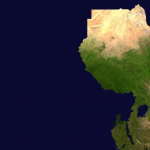A closer look at the announced U.S. drawdown in Afghanistan
You can also download an e-reader friendly version here.
According to press reports, U.S. President Donald Trump will order the withdrawal of 7,000 (or roughly half) of the American troops presently stationed in Afghanistan. The formal order has yet to be given. It may not be given for some time. Or it could be delivered tomorrow morning. A firman by tweet. Such is the uncertainty of U.S. foreign policy in the era of President Trump and the pall of uncertainty that hovers over Afghanistan today, as presidential elections have now been delayed and talks between the U.S. and the Taliban occur with greater frequency.
Exit and its dimensions
The atmosphere suggests a new season if not a new phase of the war. The beginning of a post-American Afghanistan. But a partial or complete withdrawal of U.S. forces in Afghanistan does not necessarily mean an end to the U.S. security presence there. And by no means will it necessarily result in an end to the Afghanistan war. President Trump appears to have ordered that negotiations with the Taliban be made a priority, even taking precedence over Afghanistan’s presidential elections. But that does not resolve the forty-year war between Afghans. And by intensifying the air campaign and night raids, President Trump is also shaping or creating new facts on the ground in Afghanistan: killing Taliban today create more Taliban tomorrow.
What appears to be paramount to the U.S. president is not a political settlement, but an exit. Any political settlement is merely a means to an end. And for America, the end, at least when it comes to uniformed, in-service American soldiers, is exit.
Negotiating with violence
Of course, a political settlement is one path to a U.S. exit, but it is not the only path. America could simply just leave Afghanistan, as it appears to be leaving Syria. It has the luxuries of unattachment by geography and a homeland that is far more secure today than it was on September 11, 2001. The defensive layers around fortress America are so vast that the New York City Police Department alone spends almost $200 million each year on counterterrorism and intelligence. Another 9/11 is not impossible, but it is far less possible than ever before.
A relatively early U.S. exit is not just within the realm of possibility. It may even be probable. But a “responsible exit” — as a Chinese diplomat in Islamabad recently called for — is the challenge. And it is what most countries in the region seek.
The problem in Afghanistan is ultimately of managing the levels of violence. The U.S. has failed to manage violence using the brute force at its disposal for the last seventeen years. As the U.S. air campaign hits record highs — with civilian casualties rising once again — so do the deaths of Afghans at the hands of the Taliban. A negotiation aimed at the politics behind the violence may ultimately be the only real way to lessen it.
In search of state effectiveness
Unfortunately, any robust negotiation requires a relatively capable and effective Afghan state. Capacity has been and will likely remain a
problem. Afghanistan is a weak state with porous borders. Its social divisions have been forged with the blood from decades of war. The world has pumped weapons into Afghanistan and Afghanistan pumps out narcotics to the world. It is not only the Taliban who are contesting the status quo. From the national level to the local, Afghanistan is plagued by fundamental questions about who should rule and how. These questions are resolved, often just for weeks at time, by the unilateral imposition of will, by graft, and by brute force. Then they are negotiated once again.
Western democracies have financed the state in Afghanistan for seventeen years, but they have not yet succeeded in their stewardship of a single election that was not asphyxiated by the burdens of allegations of rigging. If the question of who will rule are to be resolved, the old-fashioned means of consensus-building may be the only option available. Like virtually every other institution created by the West in Afghanistan, the promise of procedural electoral democracy is brighter than what it has delivered to date.
The U.S. presence has helped avert a worst-case scenario of an all-out civil war. But the American presence in Afghanistan also fuels violence. And America itself is a purveyor of violence in Afghanistan. Afghanistan’s neighboring countries are neither immune from that violence, nor entirely free of responsibility for it. Though every country can benefit from a effective state in Afghanistan, no country can evade blame for its ineffectiveness.
The diversity of the conflict
Managing or reducing violence is a serious global public policy challenge. It is a matter of Afghans building a capable and effective state. It is a matter of aligning the incentives of regional powers, and convincing or coercing them to be aligned with such an Afghan state. It is a matter of controlling the militias that serve America’s intelligence community, who are otherwise uncontrolled by anyone else—save, perhaps, for an aloof U.S. president.
And then there are the many wars. The war of the America that was attacked on 9/11 versus al-Qaeda remnants and the Taliban that hosted al-Qaeda on 9/11. The war of Da’esh against America, the Taliban, and Pakistan. The war of the Talib unaware of 9/11 versus the American soldier born a few years after the attacks. The war of the drug lord in Farah province versus the local Afghan police commander. The war of the Talib in Nangarhar whose uncle or brother was killed in a U.S. raid gone bad. And then the shadow wars: India versus Pakistan, America versus China, and Afghanistan versus Pakistan.
Risks and rewards of a negotiation
There may be a way out. Or at least a way toward a level of violence that the U.S., regional states, and a critical mass of Afghans can tolerate, and one that allows for trade and economic growth to take hold. Such a path would require an accommodation between the U.S. and the Taliban that leads to a grand bargain amongst Afghans, endorsed by every country that has the capacity to play the role of spoiler.
The strategy for such an accommodation needs to be two pronged. First, there needs to be a dramatic reduction in the scale and
impact of violence against Afghans, and the current Afghan state. Second, the threat of violence aimed at the region and the West must be eliminated. This would achieve the ownership so desperately lacking from a peace process: the confidence of Afghans themselves, and the confidence of Afghanistan’s near and far neighbors.
Should such a political settlement emerge, the Afghan civilian will benefit in the near run from a reduction in conflict, in terrorist attacks, and in air strikes and ground raids. But a political settlement will not produce a state that serves Afghan will and protects Afghan lives and fundamental rights. That could take a generation.
Moreover, a political settlement is unlikely to fully eliminate externally-directed violence. What would the Taliban have to do to prevent a regeneration of al-Qaeda core in Afghanistan? Evict the group? Permit a residual U.S. counterterrorism force to target foreign militants? How would a partnership between Afghans, including the Taliban, adequately address the challenged posed by Da’esh?
Perhaps most importantly there is the “do no harm” test. What guarantees are there that a political settlement will not concede too much to the Taliban? Or that a precipitous U.S. withdrawal does not enable al-Qaeda-linked jihadist networks or newer Da’esh networks to claim a victory against America? What measures could adequately protect the great gains in women’s mobility, in education, in health and in sanitation that have accumulated from the post Taliban era? These are questions that merit serious consideration.
The way forward
Is four months enough time to answer the key questions? Probably not. But some measures can help mitigate against the most dangerous risks.
The announcement of a U.S. withdrawal timetable should be timed with the announcement of a ceasefire. Withdrawal would have to be conditional, not unilaterally declared by Washington. The Taliban would need to engage directly not only with the Afghan state as it is configured today, but with a broad segment of stakeholders in Afghanistan outside the government—especially the young, educated, urban Afghan.
An interim setup with Taliban representation could then be formed. Next, the Afghans will have to have their own conversation on a new political setup, something akin to the Bonn Conference. Though Afghanistan is an “Islamic republic,” the Taliban will want more of the “Islamic” and less of the republic. The equilibrium that Afghans reach may determine the longevity of the peace. Concurrent to the question of ideology and structure is the question of ethnicity and structure. Non-Pakhtuns will want greater federalism and some measure of dyarchy may help achieve it, including the creation of an office of prime minister. The end result would be a substantially amended constitution, or a new one altogether. The conclusion of these talks could then pave the way for the withdrawal of the remaining U.S. troops in Afghanistan – delivering to President Trump, the thing that he wants most in Afghanistan.
Disclaimer: The views and opinions expressed in this article are those of the authors and do not necessarily reflect the official policy or position of Tabadlab Pvt. Ltd.
 Arif Rafiq (@arifcrafiq) is a non-resident fellow at the Middle East Institute in Washington, DC and president of Vizier Consulting, LLC, a political risk advisory firm focused on the Middle East and South Asia.
Arif Rafiq (@arifcrafiq) is a non-resident fellow at the Middle East Institute in Washington, DC and president of Vizier Consulting, LLC, a political risk advisory firm focused on the Middle East and South Asia.
Sources
• Report of the Finance Division on the Fiscal 2019 Preliminary Budget and the Fiscal 2018 Preliminary Mayor’s Management
Report for the New York Police Department (Rep.). (2018, March). Retrieved https://council.nyc.gov/budget/wp-content/
uploads/sites/54/2018/03/FY19-New-York-Police-Department.pdf
• Afghan presidential election delayed by three months. (2018 December) https://www.bbc.com/news/world-asia-46686862
• China Calls for ‘Responsible’ US Withdrawal from Afghanistan. (2018 December) https://www.voanews.com/a/chi
na-calls-for-responsible-us-withdrawal-from-afghanistan/4722962.html
A Non-Resident Fellow at the Middle East Institute in Washington, DC and president of Vizier Consulting, LLC, a political risk advisory firm focused on the Middle East and South Asia.






